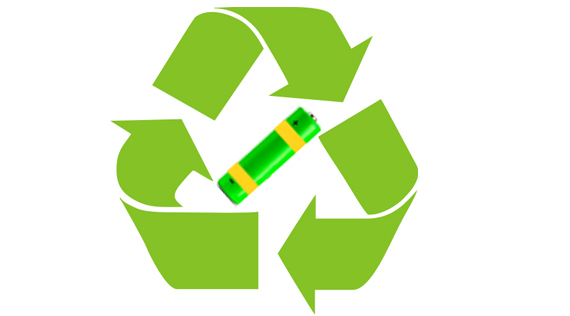
SEATTLE (Waste 360): Batteries have long been a persistent headache for recyclers. They’re fire hazards, hard and expensive to break apart and their worth keeps dropping as cheaper ones evolve with fewer valuable materials. But one Iowa State University researcher has developed a technology that could someday make recyclers’ jobs easier and more profitable.
Lead investigator Reza Montazami’s transient battery is not ready for prime time, but he and his team have made headway. Using a solvent, they’ve figured out how to fully dissolve a lithium-ion battery in minutes compared to the hours to days it takes to break them down with conventional heat or chemical practices.
Not only is the process quicker, but it’s more controlled, which is key, says Montazami.
“We want disintegration to be fast, so it minimizes time and energy required. But we also want to prevent unwanted disintegration to save what’s valuable,” he says. The team has accomplished both goals at lab scale, by controlling both the rate and temperature at which lithium-ion batteries degrade.
Montazami believes the technology has potential to someday serve as a platform for recycling any lithium-ion battery. But, for now, the focus is on finetuning the experimental process leveraging polymers like polyvinyl alcohol (PVA), which dissolve in water but have good mechanical properties when they are dry.
Montazami is focusing specifically on printing a circuit board into a pattern required for these devices to be dissolvable.
“It’s like printing text, but instead of ink and paper, we use polymer. We have printed a circuit board, but performance is not good, so we are working on this,” he explains.
If the technology eventually proves out on circuit boards, the next step would be to figure out how to print a variety of electronic components with transient properties.
The project has funding from the Department of Defense, and the team is in the process of patenting the battery and printed circuit boards technology. But commercialization depends on licensing from companies and industry.
Courtesy: https://waste360.com
| Copper Scrap View All | |
| Alternator | 0.31 (0) |
| #1 Copper Bare Bright | 3.69 (0.04) |
| Aluminum Scrap View All | |
| 356 Aluminum Wheels (Clean) | 0.71 (0) |
| 6061 Extrusions | 0.62 (0) |
| Steel Scrap View All | |
| #1 Bundle | 475.00 (0) |
| #1 Busheling | 495.00 (0) |
| Electronics Scrap View All | |